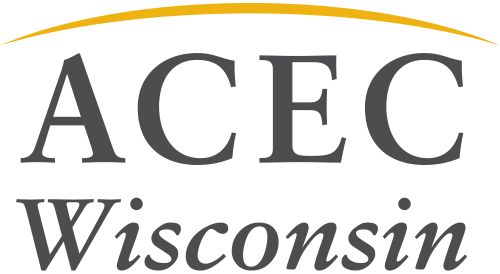Biosolids Project Collaboration Benefits All Involved
 Written by: Eric Lynne, PE, Donohue & Associates, Inc.
Written by: Eric Lynne, PE, Donohue & Associates, Inc.
![]()
In any industry, collaboration is key. While it’s easy to focus inward, the best solutions often involve looking outward, collaborating with others for increased benefits to all involved. When the City of Stevens Point faced solids handling challenges, collaboration between multiple departments within the city and with others externally resulted in an environmentally-focused, cost-effective and innovative solution.
While the City’s wastewater treatment plant had successfully turned biosolids into Class B liquid fertilizer for decades, as land application restrictions grew tighter and weather-related delays limited disposal timings, it became clear a change was needed. Donohue & Associates guided the city through the process of upgrading to a Class A biosolids process, resulting in a dried product that is decoupled from the weather.
Internal Collaboration
Collaboration began when City stakeholders started brainstorming ways to minimize project costs. Upon learning of the City leadership’s desire to merge their fleet of maintenance trucks and machinery, the team looked to reuse an existing (adjacent to the wastewater facility) collections department garage to house the new biosolids process. This approach prevented an existing building from being demolished or sitting unused.
In the interest of utilizing available resources, Donohue designed a system whereby the biogas produced by the digestion process could be used to power the biosolids drying equipment. Treated wastewater could be pumped to the new garage and workspaces for a low-cost geothermal heat loop.
The City’s focus on internal collaboration was beneficial to the entire organization. Reuse of existing facilities saved on valuable space on the existing site’s limited footprint. Switching to a Class A process allowed the city to generate revenue by creating a desirable land application product–one that if not sold, could readily be transferred off-site and reused for nutrients. The city may now consider use of the nutrient-rich product for City parks or local golf courses.
External Collaboration
 The benefits of project collaboration extended not only to the city, but to the Stevens Point community, as well. As a result of the city producing a Class A product, the fertilizer is less restricted, enabling it to be applied on the sandy soils of Portage County or blended with other topsoil amendments. An existing sludge tank was also converted to a fourth anaerobic digester, adding 200% greater capacity. The city can now receive additional waste from regional food processors, supporting the local economy and generating additional biogas to autogenously heat dry the added waste.
The benefits of project collaboration extended not only to the city, but to the Stevens Point community, as well. As a result of the city producing a Class A product, the fertilizer is less restricted, enabling it to be applied on the sandy soils of Portage County or blended with other topsoil amendments. An existing sludge tank was also converted to a fourth anaerobic digester, adding 200% greater capacity. The city can now receive additional waste from regional food processors, supporting the local economy and generating additional biogas to autogenously heat dry the added waste.
This project demonstrates that collaboration is a valuable tool in finding the optimal solution. It leads to creative options that may otherwise go unrecognized, such as the innovations incorporated into the City of Stevens Point's Class B liquid to Class A biosolids conversion project. The City’s wastewater treatment plant serves as a stellar example for other wastewater treatment organizations to follow.
Awards judge Kevin Lyons summed up the project, stating, “This project transformed the City’s liquid biosolids program to a salable Class A dried product program. I appreciated the complex and sustainable design elements including new dryer technology, harnessing biogas as a fuel source, adding 200% more digestion capacity, and a new heat pump system. This project is a gem in Wisconsin.”
About the Guest Blogger
 Eric Lynne, PE is a Senior Project/Area Manager at Donohue & Associates, Inc. with 16 years of experience in the planning, design, construction, and operation of water/wastewater treatment facilities. Located in Minneapolis, he serves clients throughout the Upper Midwest. Eric has collaborated with the City of Stevens Point for 13 years. Donohue & Associates, Inc. is a water-focused firm and a member of ACEC Wisconsin. With 11 Midwest offices, Donohue’s multi-discipline services encompass wastewater, drinking water and stormwater projects.
Eric Lynne, PE is a Senior Project/Area Manager at Donohue & Associates, Inc. with 16 years of experience in the planning, design, construction, and operation of water/wastewater treatment facilities. Located in Minneapolis, he serves clients throughout the Upper Midwest. Eric has collaborated with the City of Stevens Point for 13 years. Donohue & Associates, Inc. is a water-focused firm and a member of ACEC Wisconsin. With 11 Midwest offices, Donohue’s multi-discipline services encompass wastewater, drinking water and stormwater projects.
